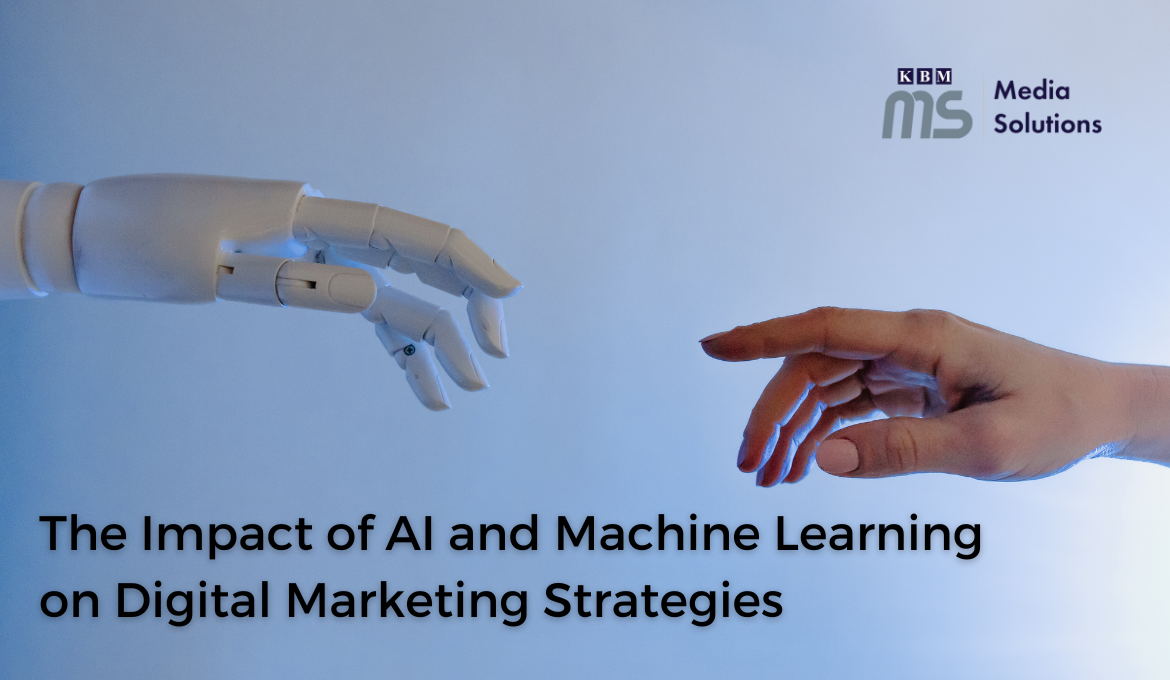The Rise of the Machines: How AI and Machine Learning are Revolutionising Digital Marketing Strategies

Posted on Mar 13, 2024
The digital marketing arena undergoes continuous evolution, with changes occurring at a rapid pace, often challenging even the most experienced practitioners. Recently, the emergence of artificial intelligence (AI) and machine learning (ML) has heralded a new era of disruption, fundamentally altering the strategies employed by brands in the online realm.
These impactful technologies have transcended their status as future buzzwords; they now actively redefine the marketing toolkit, providing unmatched insights, automation prowess, and the promise of highly personalised customer interactions.
1. Unveiling the Power of Data
Gone are the days of relying on gut instincts and guesswork. Today, AI and ML empower marketers to harness massive data generated through online interactions, social media engagement, and website analytics. Through sophisticated algorithms, these technologies can uncover hidden patterns and customer preferences and even predict future behaviour.
Imagine understanding which content resonates most with specific demographics, pinpointing the optimal timing for ad campaigns, or even anticipating customer needs before they arise. This granular level of insight allows for data-driven decision-making, enabling marketers to optimise campaigns for maximum reach, engagement, and conversions.
For instance, imagine a clothing retailer implementing an AI-powered recommendation engine. The engine can curate personalised product suggestions in real-time by analysing a customer's past purchases, browsing history, and even social media activity. This would increase the customer experience and enhance the likelihood of impulse purchases and brand loyalty.
2. Freeing Up Time for Strategic Focus
While AI excels at crunching numbers and gleaning insights, its impact extends beyond mere analysis. Machine learning algorithms can automate various repetitive tasks, freeing valuable time for human strategists to focus on the bigger picture. From managing email campaigns and scheduling social media posts to generating reports and optimising ad bids, AI can handle the grunt work, ensuring marketing teams operate at peak efficiency.
An excellent illustration is the integration of chatbots into customer service. These AI-driven virtual assistants manage routine inquiries, address basic queries, and resolve straightforward issues, thereby liberating human agents to handle more intricate concerns. This dual benefit enhances customer satisfaction and lowers operational expenses, enabling human agents to focus their expertise on high-priority interactions.
3. Tailoring the Experience to Each Individual
In today's crowded online space, generic marketing messages are unnecessary. Consumers increasingly want personalised experiences tailored to their individual needs and preferences. AI and ML make this hyper-personalisation possible by enabling the creation of dynamic content, targeted advertising, and bespoke customer journeys.
Picture arriving at a website where you're greeted by your name, presented with product recommendations derived from your previous purchases, and offered content perfectly aligned with your interests. This level of individualised attention fosters deeper engagement, builds brand loyalty, and ultimately drives conversions.
One way brands are achieving this is through dynamic landing pages. Using AI, websites can automatically adjust their content and layout based on visitors' demographics, browsing history, and real-time location. This creates a highly relevant experience that feels tailor-made for each individual, significantly increasing the likelihood of engagement and conversion.
4. Embracing the Potential and Addressing the Challenges
While the transformative power of AI and ML in digital marketing is undeniable, it's essential to acknowledge the challenges of their adoption. Ethical considerations around data privacy and algorithmic bias need careful attention.
Additionally, marketers must navigate the ever-evolving landscape of technology and ensure they have the necessary skills and infrastructure to implement these solutions effectively. Despite the obstacles, there's no denying that the future of digital marketing is closely intertwined with the progress of AI and ML.
By embracing these technologies and their transformative potential, brands can unlock unprecedented customer understanding, automation efficiencies, and hyper-personalised experiences. This new era demands not only technical expertise but also a shift in mindset that prioritises data-driven decision-making, continuous learning, and a focus on building meaningful connections with customers in a dynamic and ever-evolving digital landscape.
Wrap up
The infusion of AI and ML into digital marketing strategies goes beyond a passing trend; it represents a fundamental transformation in how brands engage with their customers. Leveraging these technologies' capabilities, marketers can introduce a fresh era characterised by personalised experiences, enhanced efficiency, and profound insights into customer behaviour.
While challenges remain, the potential rewards are undeniable. Those who embrace AI and ML today stand poised to thrive in the future of digital marketing, forging deeper connections with their customers and achieving unparalleled success in the ever-evolving online landscape.